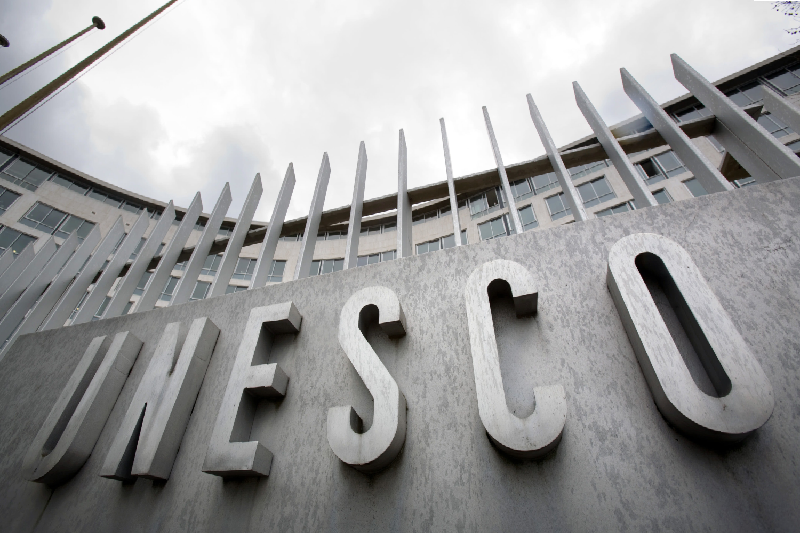
Trump Orders UNESCO Exit, Undermining US Leadership in Global Education
In a significant and controversial move, the United States has announced its decision to withdraw from UNESCO (United Nations Educational, Scientific and Cultural Organization), marking a step backward for the country’s leadership in global education. This marks the third time in history that the US has pulled out of the organization, setting a December 2026 departure under the administration of Donald Trump, who is once again charting a course towards isolationism in his second term.
The decision strikes a powerful blow to international cooperation in education, culture, and science. For decades, UNESCO has been central in promoting global learning goals, safeguarding cultural heritage, and supporting inclusive education in regions affected by conflict, poverty, and inequality. Withdrawing now sends a clear message that the United States no longer wants to lead or even be involved in shaping the global educational agenda.
UNESCO's Role in Global Education
UNESCO has played an essential role in defining and coordinating global education initiatives. The organization’s influence has been immense, especially in the realms of curriculum development, teacher training, and addressing key global challenges like digital access, media literacy, and learning equity. It has worked tirelessly on projects that bring global collaboration into classrooms across all regions, from developing nations to conflict zones.
The United States, which had long been a major financial contributor and policymaker within UNESCO, will now find itself sidelined in one of the most critical areas of global development. As global education increasingly becomes a shared responsibility, this withdrawal raises concerns about the country’s ability to shape the direction of international educational initiatives in the future.
Impact on Global Education Projects
UNESCO leads numerous critical programs such as Education for Sustainable Development, Futures of Education, and initiatives promoting global citizenship. The absence of the US will likely weaken the country’s influence on shaping these forward-thinking educational frameworks.
The decision also has practical consequences. Key projects focused on teacher training in conflict zones, supporting inclusive education models, and fostering intercultural dialogue will proceed without American participation. The loss of this valuable input will be felt globally, particularly by educators, researchers, and students who depend on such international collaborations to enhance their work.
Repeating History: US-UNESCO Relationship
This withdrawal is a part of a recurring cycle in the US-UNESCO relationship. The United States first withdrew from UNESCO in 1983 under President Ronald Reagan, citing allegations of anti-Western bias within the organization. However, under President George W. Bush, the US rejoined in 2003 to reassert its influence in global education and policy.
In 2017, during Trump’s first term, the US exited again, citing similar concerns over UNESCO's anti-Israel stance and its growing political leanings. The Biden administration reversed the decision in 2023, rejoining UNESCO in order to counter China’s rising influence, address unpaid dues, and refocus on critical projects related to Holocaust education and vulnerable regions.
Now, as President Trump doubles down on a nationalist foreign policy in his second term, UNESCO once again becomes the casualty of ideological conflict. This is a blow to American diplomacy, especially in the realm of cultural diplomacy and educational collaboration.
The Fallout: Local and Global Impact
The US administration presents the withdrawal as a defense of national interest, but this decision will have widespread consequences for educators, researchers, and students both in the US and globally. Programs that foster intercultural exchange, inclusive education, and teacher development in marginalized areas will progress without the significant partnership of the United States.
While UNESCO has indicated it has prepared for this move, diversifying its funding sources, the absence of the US — once a major financial backer — will undoubtedly affect the collective strength of international educational efforts. Given the urgency of global education challenges, such as digital inequality and misinformation, the question arises: Can the US afford to distance itself from the networks that will shape the future of education worldwide?
A Retreat from Global Education Leadership?
The bigger question looms large: Can the US afford to isolate itself from the networks that shape how future generations learn, think, and connect? By opting for an exit over engagement, the United States is not just stepping away from UNESCO, but it is also potentially retreating from the future of education itself.
As the world faces increasingly complex challenges in the field of education — including the digital divide, rising misinformation, and global crises — this withdrawal could set the US back in its ability to lead educational reforms globally. It signals a broader trend of nationalism over international collaboration, a retreat from the collaborative, multilateral approach that has defined much of the US’s influence in global education.
The decision has far-reaching implications, not only for the US’s global role but also for global education as a whole. In choosing to isolate itself, the United States risks undermining its influence in shaping the global educational landscape at a time when cooperation and collaboration are more crucial than ever.
Conclusion
The United States' withdrawal from UNESCO under Donald Trump marks a critical turning point in the nation's engagement with global education. With the decision to retreat from the global stage, the US not only diminishes its own influence but also weakens the collective efforts of the international community to build equitable and sustainable education systems for the future.
As countries like China continue to expand their influence in international education, the US’s isolation from UNESCO could signal a lost opportunity to shape the direction of global education at a time when the world needs cooperation more than ever. Only time will tell how this decision impacts America’s leadership in education, and whether it can recover the ground it has ceded.



